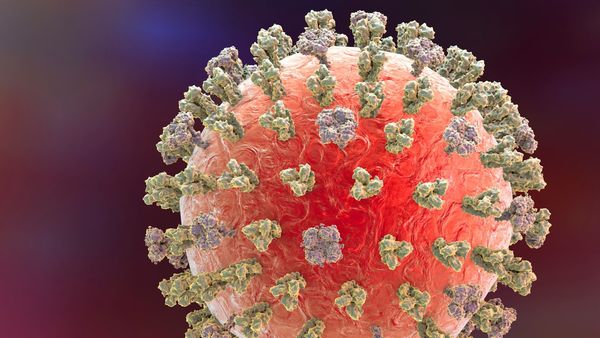
Authorities in Switzerland and Bulgaria say all remaining coronavirus restrictions will be lifted this week as the World Health Organisation released a plan it says could allow the world to end the emergency phase of the pandemic.
Switzerland will end the last of its remaining COVID-19 curbs on Friday, the government said, as the country seeks to live with the virus.
The obligation to wear a mask on public transport and at health facilities, as well as the requirement to self-isolate for five days after a positive test will be removed, the government said.
Responsibility for containing the virus will be handed to local authorities, it added, with a phase of heightened vigilance planned over the next 12 months.
“Thanks to the high level of immunisation of the population, there has been no marked increase in the number of COVID-19 patients in intensive care units in recent weeks, although the number of infections has risen again in the meantime,” the government said in a statement.
“There is little likelihood of a public health threat in the coming months. However, the further course of the COVID-19 pandemic cannot be reliably estimated.”
The coronavirus will most likely not disappear, the government said, but become endemic with seasonal waves of the virus likely in the future.
The government said it would also temporarily deactivate the Swiss COVID app which identifies people who have had close contact with others who have been infected with the coronavirus.
Swiss infections have remained at a high level in recent days, with more than 16,462 new cases reported on Wednesday, although only 165 people needed hospital treatment.
After a slow start, 69 per cent of the country’s 8.6 million people is fully vaccinated.
So far, 3.48 million people – or 41 per cent of the country’s population – have reported cases while 13,060 people have died.
Bulgaria will also lift all restrictions from Friday, including the wearing of protective masks indoors and travel bans for foreigners from countries with serious coronavirus outbreaks, Health Minister Assena Serbezova said on Wednesday.
The changes come after the centrist coalition government decided to end a state of alert introduced two years ago when the pandemic first hit the Balkan country.
Bulgaria remains the European Union’s least-vaccinated country, with less than 30 per cent of the population fully inoculated amid distrust in state institutions.
The pandemic has killed 36,498 people in the country of seven million.
The number of new daily coronavirus infections in Bulgaria stood at 1698 on Wednesday, far off the record high of 12,399 hit at the end of January.
Other restrictions to be lifted include compulsory physical distancing, capacity limits for restaurants, theatres and events and online studies for universities.
The WHO on Wednesday released an updated plan for COVID-19, laying out three possible scenarios for how the pandemic will evolve this year.
“Based on what we know now, the most likely scenario is that the COVID-19 virus continues to evolve but the severity of disease it causes reduces over time as immunity increases due to vaccination and infection,” Director-General Tedros Adhanom Ghebreyesus said during a briefing.
In this base-case scenario, which serves as the WHO’s working model, the virus causes less severe outbreaks with periodic spikes in transmission as immunity wanes.
Booster shots might be needed for those most at risk.
The virus would likely fall into a seasonal pattern, with peaks in colder months, similar to influenza.
In the WHO’s rosier, best-case scenario, future variants would be “significantly less severe” and protection from severe disease would be long-lasting, without the need for future boosting or significant changes to current vaccines.
In the worst-case scenario, the virus transforms into a new, highly transmissible and deadly threat.
In this scenario, vaccines would be less effective and immunity from severe disease and death would wane rapidly, requiring significant changes to current vaccines and a broad campaign of booster shots for vulnerable groups.
The updated Strategic Preparedness, Readiness and Response Plan sets out the strategic adjustments that every country needs to make to address the drivers of SARS-CoV-2 transmission, lessen the impact of COVID-19 and end the global emergency.
The report is the WHO’s third and will likely be its last, Tedros said.
The WHO’s first report was released in February 2020, at the start of the pandemic.







